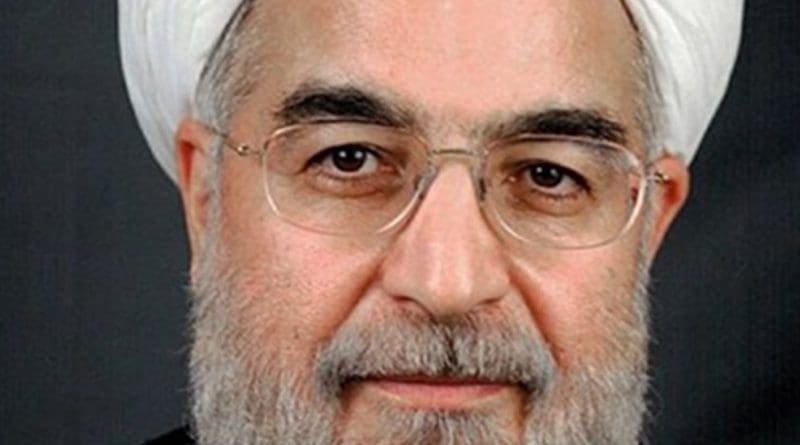Rohani’s Meeting With Pope Francis And Two Historic Opportunities – OpEd
By Iran Review
By Davoud Feirahi*
Iran’s President Hassan Rohani met with Pope Francis, the leader of millions of world Catholics, in the second leg of his European tour, which took him to Italy and France. The meeting between head of Iran’s executive power and the Pope is of high political and international importance under the current conditions that govern the international system. The Pope is considered as important representative of the Christian civilization and, from this viewpoint, enjoys special position and respect among European countries and the world.
On the other hand, the government of the Islamic Republic of Iran is also one of the important representatives of the Islamic world, especially that this government is headed by the clerics and Muslim ulema. As a result, the meeting between Iran’s president, as a cleric, and the Pope can be considered as an opportunity in which representatives of two major world religions, namely, Islam and Christianity, have sit down for talks in an interactive atmosphere, which is a big event in its own right.
This meeting took place at a time that special conditions have overshadowed relations between the Islamic world and Christianity, on the one hand, and relations between Iran and the Western world, on the other. At the same time, the merciful image of Islam is being tarnished by many international media. Meanwhile, violent measures taken by extremist and terrorist groups that embark on violence and massacre of people with a claim to be following Islam have also greatly helped prop up this media line. Another point is that the meeting between Rohani and the Pope took place at a time that the manufactured nuclear crisis, which had created a wide gap between Iran and the Western countries, has reached a final solution, as a result of which a unique opportunity has been created for both sides to reduce their differences and listen to each other’s voice.
By taking advantage of these conditions, Rohani managed to provide two possibilities. Firstly, he brought up and pursued the issue of coexistence, which he has made the main motto of his administration inside the country, in the form of the coexistence of civilizations and the merciful Islam. By doing so, he proved that despite their loud voice, terrorists are a minority, because the majority of people in the Islamic world do not cherish their ideas and it happens that the majority of Muslims are peace-loving people. Historical records also show that apart from some exceptions, Muslims have always lived in peaceful coexistence with other religions. The important point is to establish the fact that Muslims and Christians can stick to their special convictions while engaging in two-way interaction on equal standing.
Secondly, the one-on-one meeting between Rohani and the leader of the world Catholics was a good opportunity for great leaders of the world to engage in direct talks instead of hearing the voice of Islam through media, so that it would be possible to introduce a pacifist voice as the dominant voice of Islam to representatives of other religions. In this way, instead of the two sides talking about each other, they talked about dialogue. This issue is important in that indirect and mediated talks are usually prone to distortion, especially that the dominance of the world’s media empire can introduce the violence of a small group as that of a majority. Taking these conditions into account, it will seem evident that direct talks between Iran and the West are of high value. Also, the mere presence of Iran’s president in Vatican, as a religious scholar and a member of the elite, who enjoys good ranking in the country and from the viewpoint of his scientific and social standing and command of the ideology of Islam enjoys a good position, will certainly be followed by useful outcomes.
*Davoud Feirahi
University of Tehran Professor and Islam Scholar
Source: Iran Newspaper
http://iran-newspaper.com/
Translated By: Iran Review.Org

